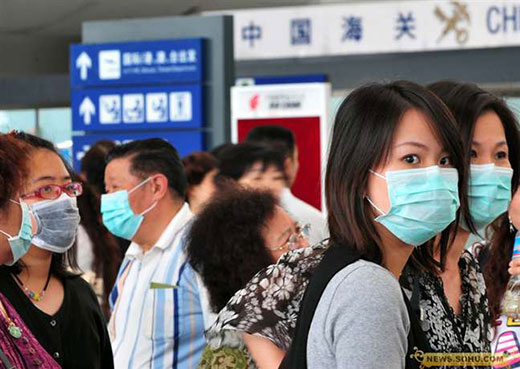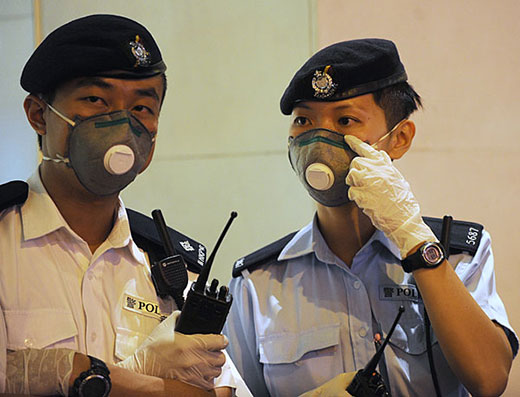
Fight against the deadly A/H1N1 flu virus kept intensifying in China. Vice Premier Li Keqiang inspected the National Institute for the Control of Pharmaceutical and Biological Products here on Monday, which further highlighted the government's resolve to carry on the influenza vaccination campaign amid the growing infections.
As of 3 p.m. Monday, 30 people on the Chinese mainland had died of the flu among nearly 60,000 confirmed cases, figures from the Ministry of Health showed.
And the virus has claimed more than 6,000 lives across the world as of Nov. 1, according to the World Health Organization.
China raised the nationwide alert and began to take preventive actions to curb the influenza epidemic several months ago, but its recently promoted vaccination program grasped more social attention.

Now, the vaccination has been in its full swing, especially since Premier Wen Jiabao called on, during his inspection visit to the Beijing Children's Hospital on Oct. 31, an energetic effort in fight against the virus by "encouraging the inoculation, but on a voluntary basis."
The Ministry of Health said nearly 8.75 million doses of A/H1N1flu vaccine had been inoculated as of noon Nov. 9. It has become the ministry's daily routine in publishing the progress of the vaccination.
High risk groups including students in primary and middle schools, the medical, quarantine and transport workers and the elderly are among the priorities in the program.
In response to the skepticism about the vaccine's safety, Liang Xiaofeng, vaccination expert with the Chinese Center for Disease Control and Prevention, said on Nov. 3 that large-scale clinical trial has been done before its launch and "adverse drug reaction cases related to the A/H1N1 flu vaccines are very few."
The ministry also dismissed the online spreading stories that the vaccine injection among children in September caused the virus outbreak, saying it was "scientifically groundless."
With the increase of vaccine production, the health authorities in the national capital Beijing decided on Nov. 6 to extend the jab scope to include all its 12 million residents, and a total of 402 vaccination stations will inoculate the public from Nov. 16 to Dec. 13.
China, severely subject to the onslaught of Severe Acute Respiratory Syndrome (SARS) in 2003 that killed 349 on the mainland, took the initiative this year in bringing the flu under control, particularly after a college freshman died of A/H1N1 hereon Oct. 27.
Besides the vaccination, medical experts have offered traditional Chinese medicine (TCM) therapy in curing and preventing the disease, and four different prescriptions filled specifically for the elderly, the pregnant, children and adults are available in 20 TCM hospitals in Beijing.
In addition, hospitals set up fever diagnosis clinics to minimize the cross infection.
The primary and middle schools, one of the most contagious public places for virus transmission, have played their parts too. They conducted a twice-a-day temperature taking and ensured adequate ventilation by opening the windows at intervals.
Zhou Xuyang, pupil of Fuxue Primary School in Beijing's city proper, told State Councilor Liu Yandong during her visit to the school, "we held a class meeting to spread the prevention knowledge, and even designated an 'open-window manager.'"
The neighborhood committees have intensified the publicity by handing out A/H1N1 flu leaflets and giving lectures in communities, in a bid to raise the public awareness of flu prevention and check potential panic arising from it.
It gave simple and easy advice to prevent the flu contraction: more warm liquids drinking, frequent hand-washing, gargling twice a day with warm salt water and boosting the natural immunity with vitamin C rich foods. It proclaimed that the epidemic is "preventable, treatable and not that horrible."
Meanwhile, the public transport system took actions by sterilizing subway trains and buses every day and putting on the daily updated "disinfected" reminders.
Feng Zijian, an epidemic control expert, predicted the A/H1N1 flu would be climbing in coming days, and "the disease prevention is of key importance."
Even though, in the war fighting against A/H1N1, Chinese and government paid less attention compared to SARS which hit China in 2004.